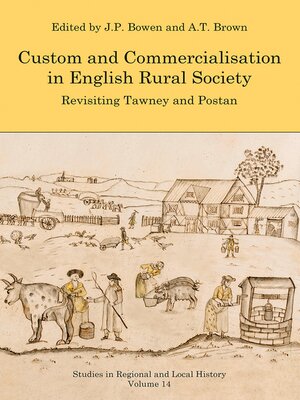Custom and Commercialisation in English Rural Society
ebook ∣ Revisiting Tawney and Postan · Studies in Regional and Local History
By J. P. Bowen

Sign up to save your library
With an OverDrive account, you can save your favorite libraries for at-a-glance information about availability. Find out more about OverDrive accounts.
Find this title in Libby, the library reading app by OverDrive.



Search for a digital library with this title
Title found at these libraries:
| Library Name | Distance |
|---|---|
| Loading... |
English rural society underwent fundamental changes between the thirteenth and eighteenth centuries with urbanization, commercialization and industrialization producing new challenges and opportunities for inhabitants of rural communities. However, our understanding of this period has been shaped by the compartmentalization of history into medieval and early-modern specialisms and by the debates surrounding the transition from feudalism to capitalism and landlord-tenant relations. Inspired by the classic works of Tawney and Postan, this collection of essays examines their relevance to historians today, distinguishing between their contrasting approaches to the pre-industrial economy and exploring the development of agriculture and rural industry; changes in land and property rights; and competition over resources in the English countryside.







